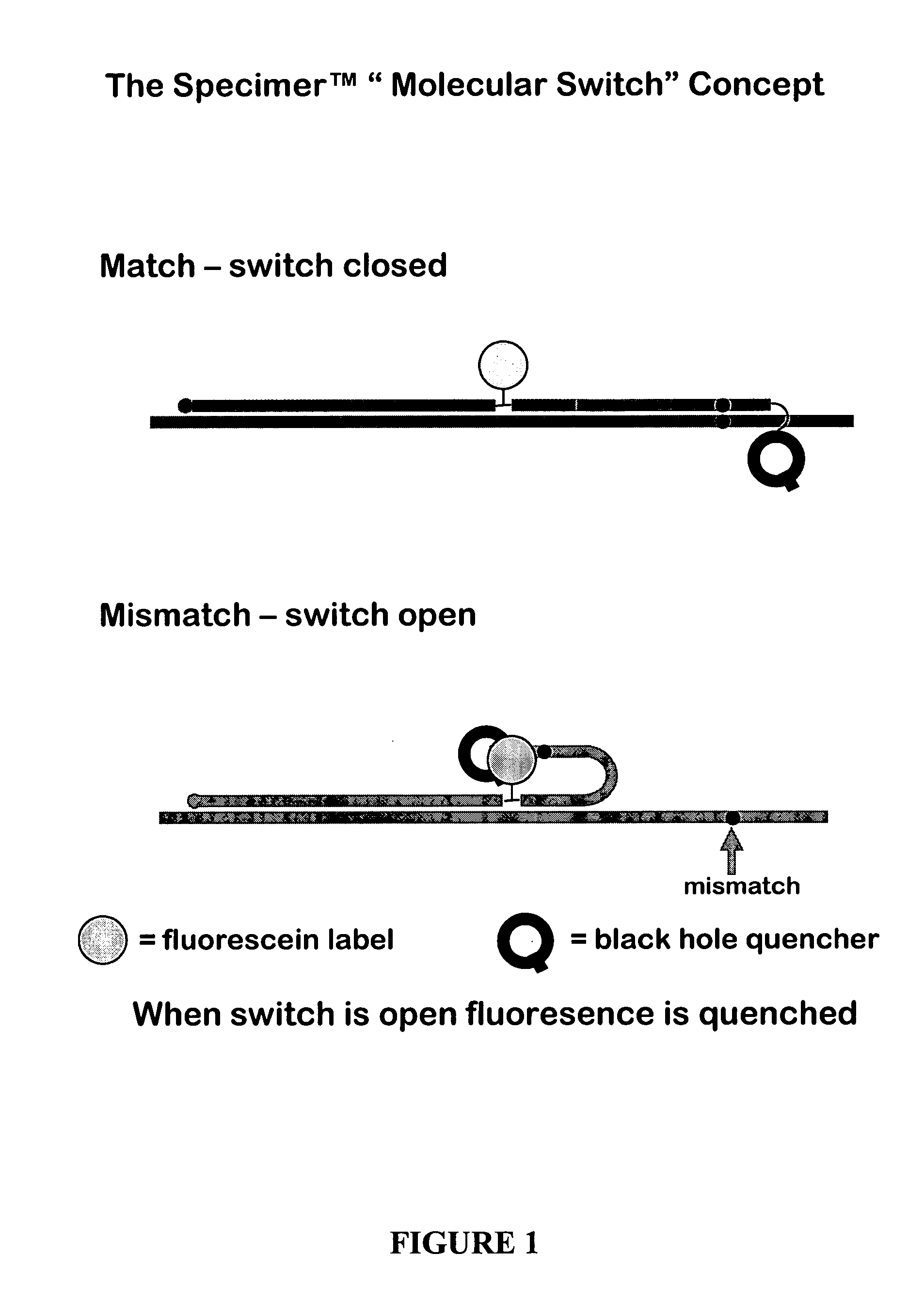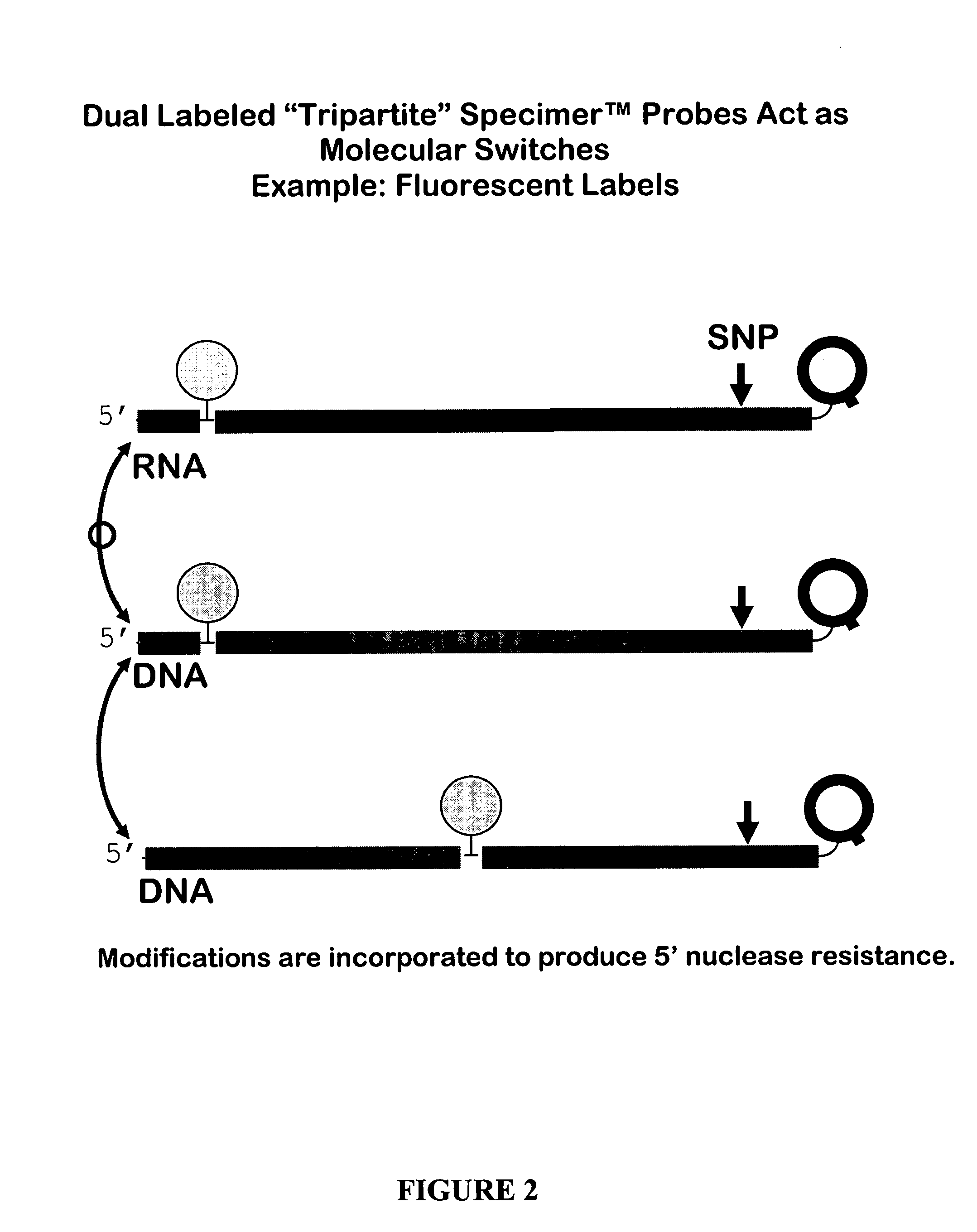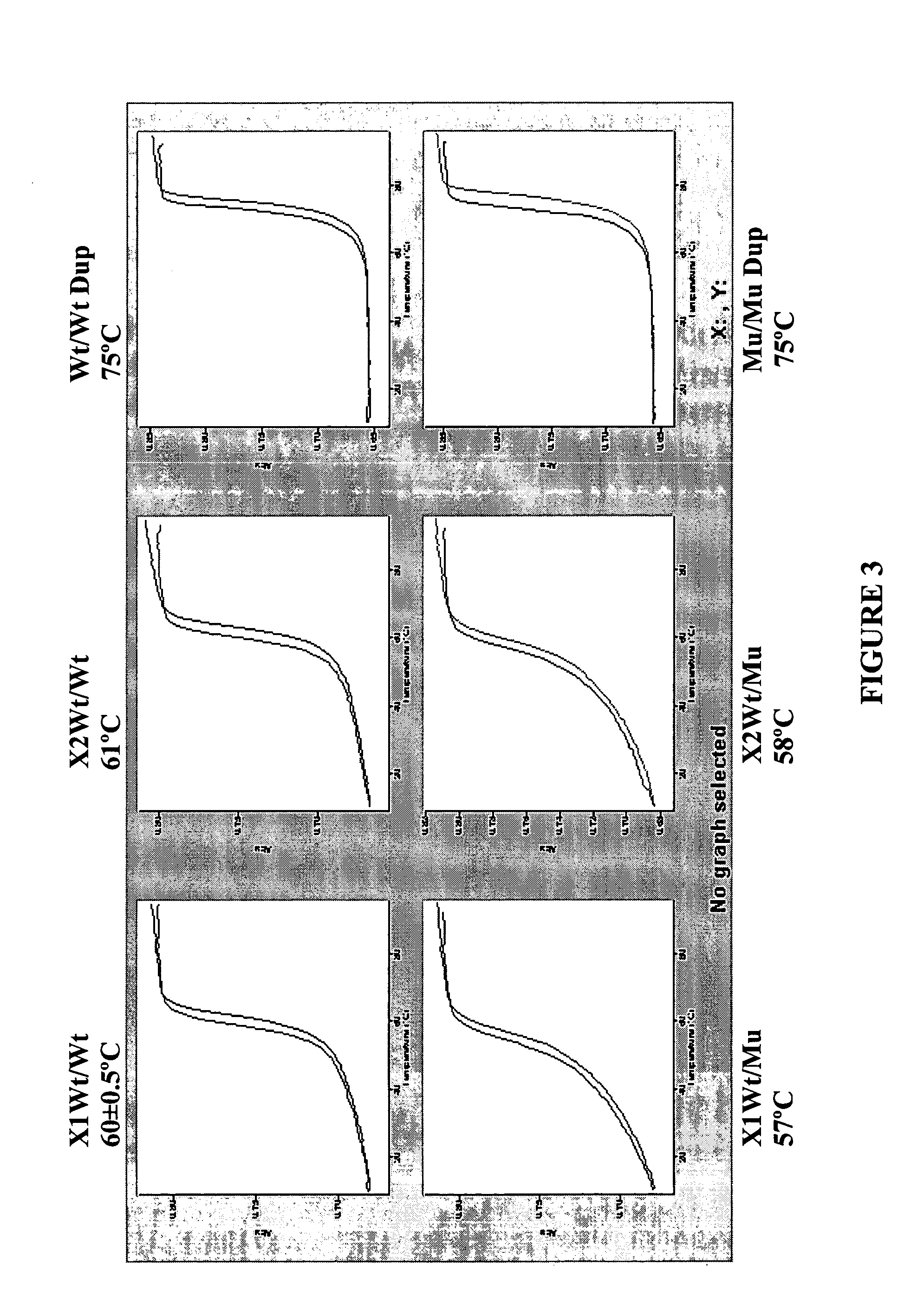Oligonucleotides comprising a molecular switch
a technology of molecular switch and oligonucleotide, which is applied in the field of oligonucleotides, can solve the problems of destabilization of the entire oligonucleotide and affect the overall dissociation parameters, and achieve the effect of improving the detection of nucleic acid hybridization
- Summary
- Abstract
- Description
- Claims
- Application Information
AI Technical Summary
Benefits of technology
Problems solved by technology
Method used
Image
Examples
example 1
[0174]Ultraviolet melting curve measurements were carried out to determine if the switch domain of the probe could be controlled to be “open” or “closed” by the influence of a single mismatch.
[0175]Melting temperatures were determined for probes containing universal bases under standard PCR buffer conditions and the results were compared to those obtained using a control sequences without the universal bases (Mu / Mu and Wt / Wt). See Table 1 for Probe and oligonucleotide target sequences. The sequences for these studies were provided by TriLink BioTechnologies, and prepared using conventional phosphoramidite DNA synthesis chemistry. The melting curve measurements were done using UV Optical Melts with Wild type (Wt) and Mutant (Mu) single strand targets in PCR reaction buffer minus dNTPs. The probes included X1WtH63D (SEQ ID NO:1), X2 WtH63D (SEQ ID NO:2), X3 WtH63D (SEQ ID NO:3), X4 WtH63D (SEQ ID NO:4), X5 WtH63D (SEQ ID NO:5), X7 WtH63D (SEQ ID NO:7), X8 WtH63D (SEQ ID NO:8), X9 WtH6...
example 2
[0183]The annealing and melting of the probes described in EXAMPLE 1 were retested but measured by fluorescence rather than UV. The presence of a perfect match was compared to mismatched single stranded targets.
[0184]The assay was performed as follows: oligonucleotide probes and separately targets were diluted to a concentration of 400 μM into water: 16 μL into 384 μL of water, making a 16 μM working stock. Then, 12.0 μL of each nucleic acid dilution(s) and / or water was added up to 25 μL total into 25 μL of 2× LIFETECH SUPERSCRIPT PCR reaction buffer to make 50 μL total final volume. The assay measured the FAM / BHQ1 interaction directly. The final probe concentration was 4 μM.
[0185]Reactions were performed in an MJ RESEARCH DNA Engine Opticon Fluorescence Detection System (MJ Research, Waltham, Mass.). After an incubation of 2-5 min. at 95° C. and cooling to 20° C. for 2-15 minutes, the mixtures were ramped from 20° C. to 95° C. at a rate of 2° C. per minute. Fluorescence was measure...
example 3
[0191]This example was run under the same conditions as EXAMPLE 2 with the exception that the probe sequences were the X11 and X14 probe sequences and the target sequences were the AntH63DWtLong (match) and AntH63DMuLong (mismatch). The purpose of this example was to examine the effect of yet longer switch sequences. This example demonstrated that further lengthening the switch portion of the probe gives greater separation in Tm between match and mismatch targets, but at the same time the discrimination at much lower temperature (20° C.) was reduced or lost all together in the case of the X14 probe. Thus, the melting temperature characteristics of switch containing probe can be further attenuated to match desired use conditions by further lengthening the switch portion. FIG. 6 clearly shows the effects on melting characteristic when the switch portion of these probes is lengthened.
PUM
| Property | Measurement | Unit |
|---|---|---|
| temperature | aaaaa | aaaaa |
| Tm | aaaaa | aaaaa |
| Tm | aaaaa | aaaaa |
Abstract
Description
Claims
Application Information
 Login to View More
Login to View More - R&D
- Intellectual Property
- Life Sciences
- Materials
- Tech Scout
- Unparalleled Data Quality
- Higher Quality Content
- 60% Fewer Hallucinations
Browse by: Latest US Patents, China's latest patents, Technical Efficacy Thesaurus, Application Domain, Technology Topic, Popular Technical Reports.
© 2025 PatSnap. All rights reserved.Legal|Privacy policy|Modern Slavery Act Transparency Statement|Sitemap|About US| Contact US: help@patsnap.com



